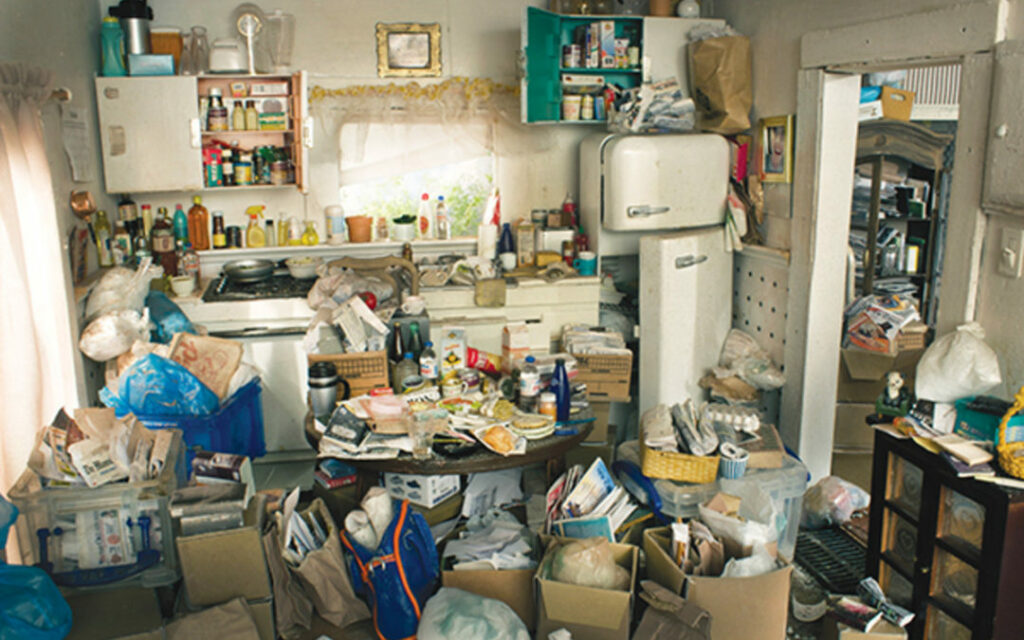While they were getting older, I realized my parents’ future looked grim in Poland. The communism maintained its tight grip on the economy and politics. The unrest past the brewing point and spilled on the streets. Everyday survival got to be a challenge. Moreover, their medical care was compromised. They didn’t complain, but I knew the reality.
We decided to move them with us to the United States.
I remembered my parents’ apartment very well. They lived there for forty years or so, for twenty-five with my sister and me. The place was decent, certainly within the then-standards of living in Poland. I spent my school years there, before coming to this country. The cubicle had less than 500 square feet.
One year was enough time to get ready for the mental transition and the winding down of their livelihood.
Or so I thought.
When I went there for the last time to bring my parents’ home, I had a glimpse of their living quarters, right before they departed to the United States to spend their last years with us. What a change from the earlier times!
I remember the Spartan quarters we had when I was in the elementary school. A few basic pieces of furniture, two sofas which at night were unfolded to change to beds for my parents, a desk and bookshelves for my father, several kitchen cabinets for my mother. There were no chairs at the kitchen table, just a wooden box used to pack the soap bars and gotten from the local grocery store. It lasted us quite a while. I still remember sitting on it and studying for the osteology exam during the first year of my medical school. By the end of its lifespan, the nails got so loose, that it was wobbly and squeaked.
Initially, there was no refrigerator and I have no idea how mother took care of our meals at that time. Early on, we had no hot water. Each time we wanted to shower, she heated a pot or two on the stove. Later, we got a gas water heater. It was located in a crampy space in the bathroom, right above the unique bathtub. The tub was short, so one couldn’t lay down and stretch. The tub had two levels, so you had to sit on the higher level and soak your legs in the lower compartment. There was a gas pilot light with all the dreadful complications coming with it. There were two well-known to me incidents of gas explosions and a death from the gas poisoning.
And we were the lucky ones.
Then, I didn’t think twice about the lack of the elevator. But now I remember an old lady who lived on the fourth floor. Occasionally, I saw her climbing the stairs, the cane in her left hand and the right on the railing. It took her forever to get to the apartment. I’ve never thought then of my parents being in this situation, and never saw myself in such a predicament.
Over the years, things have changed. The parents bought a few pieces of furniture, a refrigerator, some knickknacks, and all these items had to be fitted into their crampy space. But the walls were unyielding.
By the time I came to pick them up to travel to us, the walls were closing on them. So, they ended up with a narrow path to the bedroom, another one to the kitchen, and one more to the bathroom. I understood that every table, chair, and every painting was dear to them and from the emotional, and the practical point, it was easier to keep the item than to get rid of it. They probably knew that no one will pay them the value they’ve attached to their possessions. Another reason not to part with them.
I’ve seen that before. A long time ago, there was an old woman living in a house on the outskirts of Warsaw. She bought it well before the outbreak of WW2. She never married and, and after her siblings had died, the entire two-story house with a sumptuous attic was hers. In that place, she sheltered many refugees from Warsaw after the fall of the Uprising. Later, she rented most of the house to a few families and lived in a couple of rooms on the second floor of that mansion. There she kept most of her belongings, some remembering times before the Russian Revolution.
One wintry day, the old woman felt on an icy road and broke her hip. At that time, hip fracture was like a death sentence, and in a week this lonely woman died in her bed of pneumonia.
Her room was so crowded, that the undertaker had serious problems with getting her body out for the funeral.
One can write a deep philosophical treatise about meaning, or a lack of, all the earthly possessions. But each a person has to make a decision-first to buy it, or not, and then to keep it or not, the feelings usually take over the rational mind. I realized that when we’re downsizing our house after retirement. All the trophies, pictures, and hockey jerseys accumulated and cherished by us over the years, don’t have much meaning to our children. They flatly don’t want them.
The same probably applies to our china.


